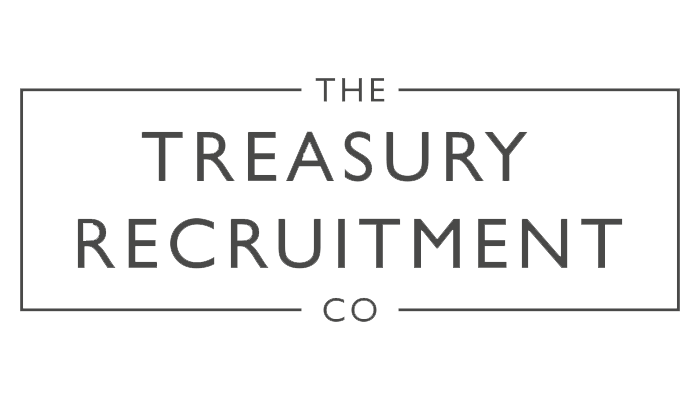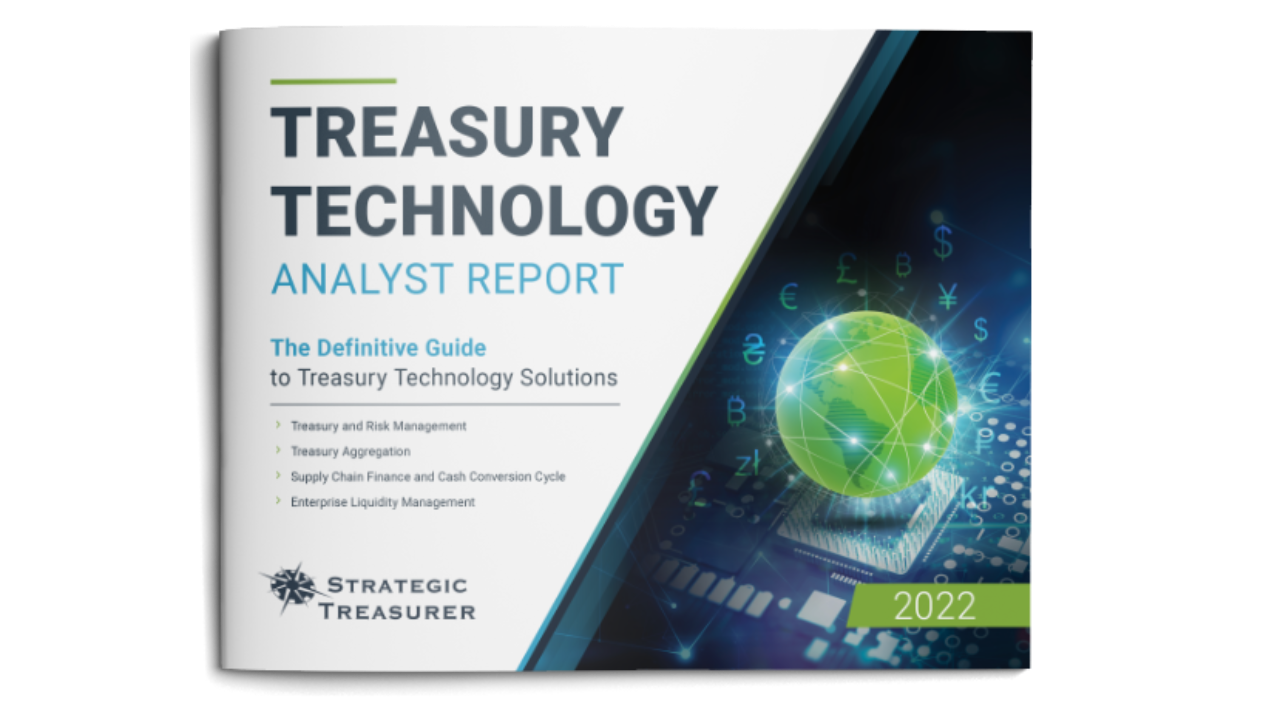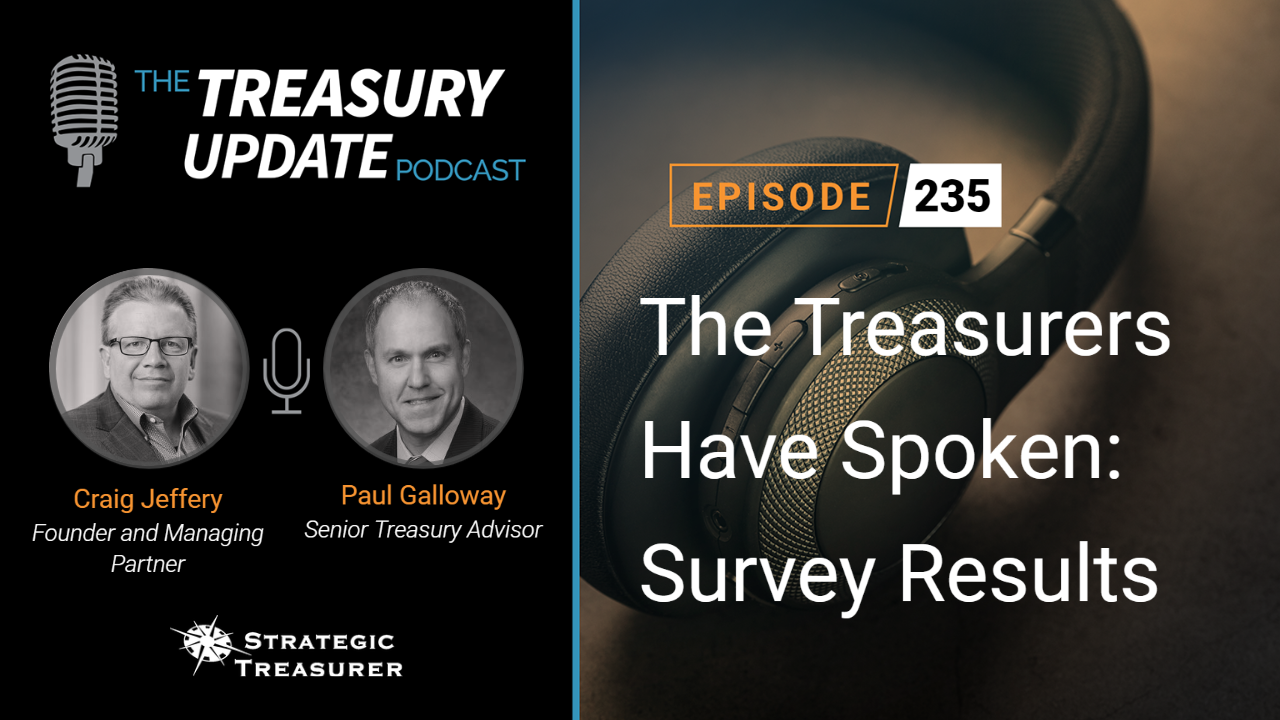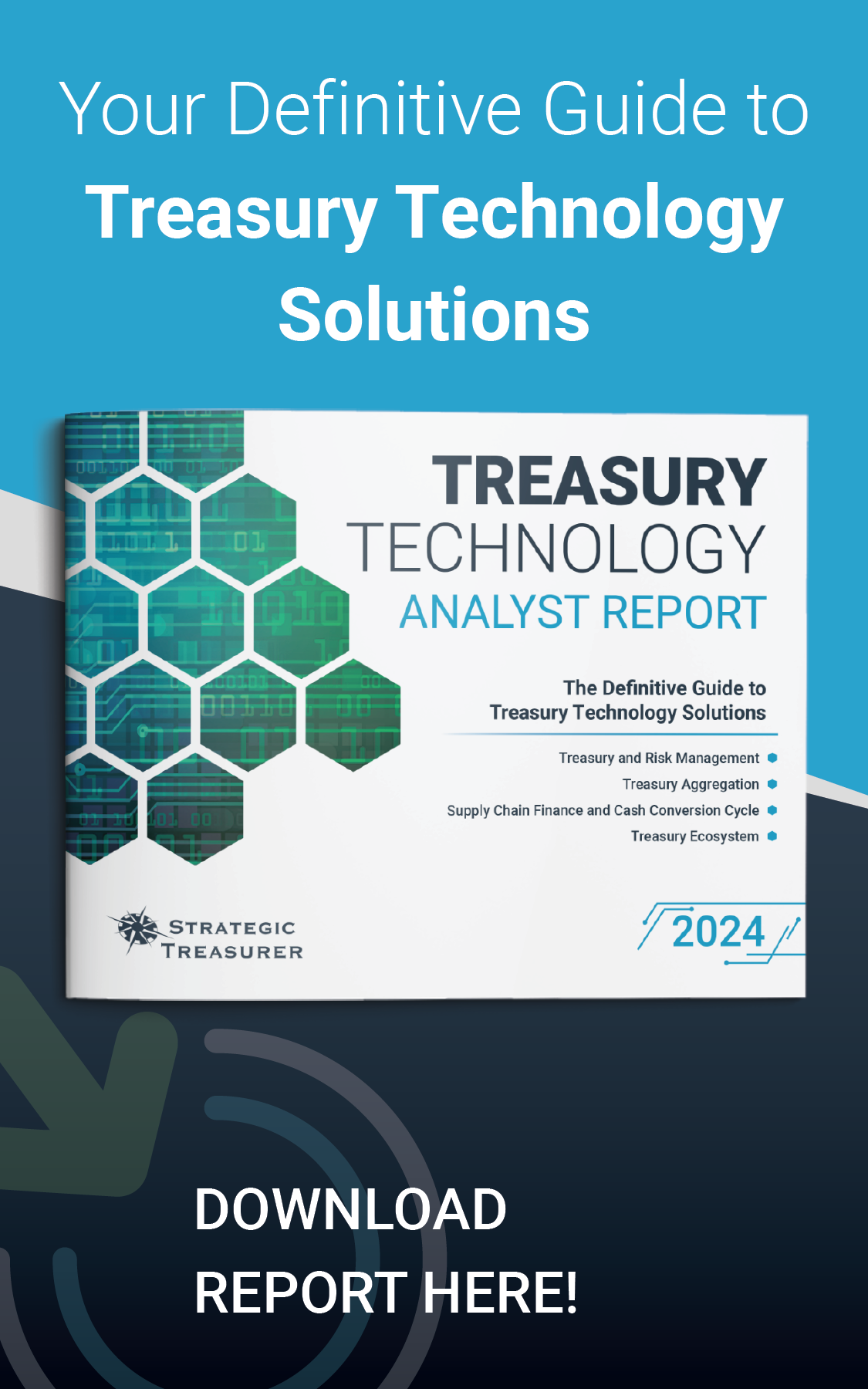
Episode 244
Bankers Have Highly Negative Response to RTO Mandates
The second survey discussed in this podcast is the Treasury Salary Survey 2023 released by the Treasury Recruitment Company. This survey can be found here!
Host:
Craig Jeffery, Strategic Treasurer


Speaker:
Mike Richards, The Treasury Recruitment Co


Episode Transcription - Episode #244 - Bankers Have Highly Negative Response to RTO Mandates
Announcer 00:04
Welcome to the Treasury Update Podcast presented by Strategic Treasurer, your source for interesting treasury news, analysis, and insights in your car, at the gym, or wherever you decide to tune in.
Craig Jeffery 00:18
Welcome to the Treasury Update Podcast. This is Craig Jeffery, your host today. I am graced with Mike Richards from Treasury Recruitment on today’s podcast. Mike, welcome to the podcast.
Mike Richards 00:30
Thank you for welcoming me. We’re going to have some interesting talks about the world of work hybrid recruiting. Gonna keep it short and sweet because these poor people you know, they need a coffee or three to you know, when they’re listening to me, Craig, obviously, you’ll you know, you’re the ringmaster. But back to you, sir.
Craig Jeffery 00:46
Yeah, so our title is work from home or return to office. But as you kind of indicated, we might have called it the move to hybrid, because that’s where it’s going to come down to. Mike, Mike, you have a podcast, we’ll put that in the show notes. It’s a great podcast. And we’ll we’ll link that in there so they can hear you hear more Mike. In addition to today’s discussion, but let’s let’s begin with the work from home, returned to Office, there’s there’s been a steady move back to the office but not fully back to the office. And there’s certainly variations by region and industry. And so Strategic Treasurer just completed a survey of Treasury and they call it Treasury we call it treasuries returned to the office, you’ve been running an ongoing survey on salaries, we’re also capturing return to the office and the hybrid work environment. And so it seemed like collaboration, and talking about these things would be quite useful. But what are some of the variations you’re seeing by region and industry?
Mike Richards 01:46
We were just talking before, Craig and I were that in Europe, they had embraced hybrid working before hybrid was a thing. You know, there was more flexibility. Sometimes there were more traditional companies that perhaps were anti, if you like, they wanted five days a week in the office. They didn’t need it. But then they over time, they realized, then along came COVID and enforced on people five days a week, have, you know, working from home, and then the slow return to work there. There’s no There’s bureaucracy around it. There’s also about the working population and workers council saying, what do we need to work? work five days a week in the office says no, we’ve just proved over the past two and a half, three years. In UK again, similarly, it was, you know, end of that February time, suddenly, march 100%. From home, the gradual return, I am seeing the UK, Treasury professionals back in the office two days a week. That’s the that’s the norm. I would say that’s where it eats in our survey and lots of other ways. I think also, what’s interesting with the sort of the return to work in the UK, is that there are more senior Treasury professionals who are now being asked, strongly encouraged, not told, as their treasurers, but very strongly encouraged by some of their CFOs to get back in the office, not five days a week, but just two or three days, and they go well, I’ve just I don’t want to. And I’m now starting to see more activity for one or two or three clients back to the moment where their treasurers are now choosing, it’s time to finish. They’re retiring, because they’re going Do you know what? I’ve had enough of this sort of stuff. And then us I mean, you’ve got this amazing snapshot, Craig, that I just loved. Do you want to I mean, I’m gonna hand it back to you, because I just thought it was a really good insight, you’ve seen that lots of people are? I don’t know, does it vary across the country? I don’t know, you perhaps volunteer your answers.
Craig Jeffery 01:46
The variations by region industry, you know, our survey was global and, and really focused on Treasury, as well, you know, 70% had experienced some type of return to Office globally, and this is mostly it’s returned to hybrid, it’s, we can break, we can break some of that out North America, it was 64% So a little less than the overall global average. And that, that we found interesting on the banking side, it’s, it’s up above 80%. So we saw that as a general return to the office, but of that 70% Where there was some type of return to Office mandate or push of that 70% Just under 60% had returned to the office mandated. Now that wasn’t always returned to the office 100% There was highly encouraged to return 27% Most and a volunteer basis 12% And then some other, you know, aspect there. So that was that’s really interesting to see it’s more of a return to hybrid, or turn to the office. Partially that seems to be the big uptick. And just before we started talking, I was relating the article that was in the the Wall Street Journal about globally. There As much more of a return to office in Europe, and in Asia compared to North America in the United States, and that’s across all professions, not not just treasury, it’s it’s primarily not treasury. And it had to do with length of commute size of homes. And so it showed the least return to the office was in the US because of these types of factors. Which is interesting, because it seems much more comparable, on the Treasury side, with what we’re seeing in the US. And in Europe, they they’re they’re much more aligned. That seems interesting, this idea of people are primarily moving to two to three days a week. I mean, that’s what you’re seeing as well, I just two to three days a week, out of out of five, so it’s more hybrid, more mix than it was in the office prior to COVID.
Mike Richards 05:56
I think there’s that I think also us clients were doing a lot of us recruitment moment. And I think I’m gonna put it, there was a question I wrote here. And again, it would have been good to sort of where you couldn’t really explore it. But whether you guys were able to dig into what is highly encouraged me. Now, what does it? What does it mean? Is it like, well, I’m going to be in the office four days a week, would you like to be when do you want to be promoted in the future? It’s proven, you don’t need to be there. I think there is. Also on the flip side, there is proof. we’re social creatures, you know, we want to share an office with people. That’s one of the things that we want to do that. And also for more junior candidates. And Craig, you and I’ve talked about this in the past, they may need more training, may need to be in the office three days a week in the earliest stages, to get their job done to be trained to go put their hand up. Oh, can you help me? Can you help me? So there’s all those different things. But I think also one of the things I’m just again, making some notes, is a client, we were recruiting for back end of last year. And they were saying, but we want people to be based in the home city. I won’t say where he is because it’s quite obvious. Whereas, and I was like, Look, they don’t have to move to you. You know, I’m seeing people coming into town, their work the Thursday, Friday in the office, then they have the weekend, then a Monday, Tuesday. And then the rest of the time they can be based wherever they like, and they’re like, oh, no, but we’d really like them based it Why do they have to move? Why are you enforcing that upon them? And so you’ve got this working from home working remotely policy. In actual fact, what I think has happened with that I know has happened, that some of the full time employees that are already there in situ have not rebelled. But they have pushed up the chain and said, Look, we finally a negative thing to try and recruit candidates by saying we want them five days a week in the office, that’s not happening three days a week in the office. Yes, maybe. But also to say they must come from the locality from the local state. fact that a lot of them, they were sort of more the districts so they then were just you know, it’s a narrow pool narrow now it’s like, no pool at all. And I think more that the employers can get their heads around that the better.
Craig Jeffery 08:15
It’s also a situation in a factor of people have been home, the efficiency has been high. There’s not a lot of open candidates in the treasury space. So it’s a it’s more of a, there’s a little bit more power on the employee side, you want to hire me, I’m willing to go hybrid, I’m willing to go in the office to three or four days a week. I want some time off. And then like you said, it’s where do you draw people from? What’s the pool and if you’re in a if you’re in a big city, you have a lot of candidates, if you’re in a smaller city, you may not have an opportunity to pull in those candidates. I wonder, I wonder if that will change as employment shifts over time. If we’re if we’re not looking at you know, 2% or less unemployment in Treasury. And I’m actually not even sure if that’s the real number. You may you may know it is but it’s it’s much harder to recruit people in Treasury these days, very different from some of the other the other fields. This situation of there’s positives and negatives to working remotely working from the office and hybrid. One of the key areas of challenges was coworker relation, relationships and collaboration that we found. If we looked at co worker relationships, 38% saw deterioration in work from home, as compared to let’s say hybrid, or work from the office, some 18% found it to be an improvement working remotely. So they found their relationships improved. So that was a net negative 20 which was the lowest collaboration suffered by self reported measure about 31% of time yet collaboration. Another 24% saw an improvement. So net net Under 7%, those are some of the areas where there’s there was a deterioration. And so being intentional in those two areas. Makes sense. But if you also look at the work from home benefits, job satisfaction, then that spread was 54%. Productivity. 38%. And, you know, that’s, that’s pretty significant yet 13%. So there’s a deterioration in that number. So it depends on the job, what’s occurring, employers, teams need to make sure we’re not, we’re not suffering, the deterioration that exist in this hybrid environment. Any thoughts on the the advantages and disadvantages are remote in person and hybrid?
Mike Richards 10:39
Pre-pandemic, if someone had said to me, Mike, we want flexible working, I’d say get out of my office, like didn’t exist, you might pay, you know, yes, you can do every other Friday away, you’re trying to move your head round, I’ve got one of my colleagues, she works 100% from home, and I had to get my head around the idea. That’s what she wants. So that’s what you need to if I didn’t do that, she would leave and get jobs with someone else. So I had to get my head around it, or she’d leave, she’d vote with our feet and things. And I think that’s what employers have to do. I think there is an important part of the conversation is about management, training, career progression, recognition of in house teams, you know, in person, versus you’ve got someone working hybrid, and someone working remotely. How do you recognize the contribution from all of those three different groups, if you like, even when they’re not what three different groups are the same group? They’re the your team? Right. So that’s one of the things I would say that how do people cope with that shift? I’ve often said as well, prior to this week, and great, thanks very much you name check to Treasurycareer.com. So get in there. Yeah, that’s the one. The what I do, and I try not to do all the talking on that. Unlike this. I interview treasures about there. It’s weird. I also I told you I find this weird. I’m doing the talking and I’m that thinking Shut up. Ask a question. Rip mic and be quiet. But no, coming back to the podcast. Prior all the way through. Actually from we started it four years ago, I thought we’d last 10 episodes. 270 interviews plus, with treasurers right the way across the globe. But the key thing that kept coming up all the time is that you go on from a treasury, unless beginning your career, all the way through to global treasure that year managed a team of 50 people. Wow, amazing how much management training have you got? Well, yeah, you so you now manage a team of 50? Effectively? Yeah, of course all these times as Yeah. How much did you get coaching you to be this great team? Well, no, and I’m sort of a lot of them are accidental. Managers, coaches, mentors, and I think is a massive gap if you like. And now this has been highlighted even more the relevance to this is we’ve got the in person team, you’ve got the remote team, you’ve got the hybrid. It’s another management challenge overlaid on what was already a challenging situation. How do you provide equal opportunities? If someone wants to promotion? Do you give it to Jane who’s in the office, or Bob who works from home? While I see in more often I’m able to communicate with her and I chat to her more, blah, blah, blah. Hang on. What about Bob? He’s doing a great job. How do you recognize what he’s done as well? I think that’s one of the areas the softer areas that perhaps your survey my survey didn’t, you know, it’s so difficult to assess. I mean, do you think that have you had you’ve had conversation, you regularly have conversations with Treasury folks? Is that have you heard as that part of the conversation recently or not?
Craig Jeffery 13:51
It depends on the the Treasury group, and whether they’re all geographically located a single location, whether they have regional Treasury centers, how do you manage geographically? How do you manage against across different age cohorts and different learning styles? I think that’s probably the biggest area where there’s this assumption that we all know how to do it. And we all know how to do it well. And I think that’s probably that’s probably a myth. We can all use pointers. And I know, I learned a lot. You know, I guess I’ll give some examples of, you know, you look at different age cohorts and whatever age cohort you’re part of, you know, from your age, compared to what mindset you have, that you can be at, you can have a different mindset than your age cohort would indicate. But if we look at Zoomers, right, that newest generation coming in, you can say, hey, they’re lazy, they don’t want to do the work. And they don’t want to do manual work. That’s let’s say lots of keying, keying for an hour because they can get a job where they’re spending all day, not keying stuff, not doing manual labor, and they’re like, I’m not going to do that dumb stuff. That’s actually smart. Like why would Why would somebody do that? That makes logical sense. It’s not necessary. Maybe somebody is lazy, but why would they do something that’s dumb, I’m not gonna dig a foundation for my house with a shovel. We’re gonna get somebody with a giant backhoe or earthmover to do that, right? It’s like it doesn’t, it doesn’t make sense. And there’s a there’s a bit of a water on the face cold reality, when someone says, I’m not doing that I can do this over here. And you’re like, yeah, all of those things make sense? And so we’ve, we’ve had conversations with companies where they’re like, can you give Can you backfill us, and help us automate this process, so we can hire people who will stay because they won’t do these bad things? And so that’s, that’s one aspect of changing expectations is one aspect of that. The other is, you know, managing people remotely for for us. And I know for you, you’ve had people in different cities in different continents, we’ve, we’ve always had people in different time zones, different states, particular consulting team, right, they would be in different locations. Why would we move them down to the office, we will also see each other at client sites and events regularly. So there was the ability to do the interaction, quite well. Now we have, we have analysts that are located in different cities as well. But we have to be intentional there is most people need some kind of connection once in a while. So they come in the office once a year, twice, or three times a year, if we’re not catching up at a client site. So this ability to manage and handle a career issue, we experience it, we certainly see that in companies spritz, particularly when they’ve hired people remotely. And they didn’t do that before. Now, there’s even some companies are saying you’ve got to come into the office like you hired me, I’m in a very, I’m in a different city in a different state, or a different different region, I really wasn’t going to take the job to move I took it was remote. Now you’re changing it pretty dramatically. It’s not like we went home because of COVID. Now we want people to come back. That’s that’s a very different scenario. I think that’s a almost impossible thing to manage. I think that address is part of what you’re saying.
Mike Richards 17:03
It does. And also one linkage. We haven’t talked about Craig, which is one of the topics if you like there’s Well, there was just again, we we get all knowledge through our salary survey that we host at Treasury salary.com. So if anyone is listening today and thinks I need to benchmark that my salary that my team, just go there, we do it globally. We are increasing our numbers throughout the US. And you and I did a previous podcast where we talked about the differentials between the East Coast, West Coast and some of the lower cost areas. But actually, you’re talking about areas. Remote isn’t an area, remote is its own thing, and people are moving to lower cost centers. And it’s that linkage now it seems to have dropped out, I certainly haven’t seen any lot of puff pieces in the press where they were like, Oh, well, if you’re a remote worker, you’ll get paid less. And, you know, different big names are saying, well, actually, we’ll pay our remote workers this cost, and actually this much less 20% less because they can live somewhere 20% less cost. But actually, that seems to disappeared a little bit. Now, the reasons for that, you know, what would I guess I’d say? Well, the fact is you’ve got to pay people what they’re worth, not where they’re based. And that’s one of the key things, I think it’s about their contribution to the workplace and what they can do. I placed you know, I had a situation that last year actually placed a lady who’s amazing treasurer, she works 100% remotely for an LA media company. But she’s based in New York, and that but she works 100% remotely. Now, the cost actually, the salary cost wasn’t ever a thing that came into the conversation. What came into the conversation was the CFO said, Well, I was saying, Oh, do you want them to come across the West Coast sometimes is that no. Is that? Why is it? We just worked at our kitchen tables, Mike, for two years? Why am I then gonna say right? Get on a plane, just as you made out there that, you know, why does she need to come see us? He said the natural fact I’ll probably see her more that when I go to New York, I’ll catch up, we’ll have lunch and we’ll have this. You said we can zoom. You know, I’m not expecting her to get on the plane and go to London to a meeting. She can talk to the guys in London at a decent time for her earlier for me on the West Coast. You know, that’s opened up all of those and that’s a, I would say a very wise client, you know, because he’s not saying or putting his old ideals on to the to the recruitment situation. I think this you know, hybrid working models are here to stay. And it’s how people embrace those. And if they don’t, it’s a it’s a disadvantage to you. And if you do embrace them, it’s a competitive advantage if you can say actually, we’re hybrid least want to. I’ve got a client the other day who said we’re Looking to recruit remotely, what do you think, and it might be a part time role as I can do that, into that straightaway, I’ve got people that if I put it up there, you know, what we need to do is make sure it’s going to work for people. But if you want remote part time, we can recruit that he’s going to, it’s the first time they’ve ever thought about it. So they haven’t got together, you know, but if people are interested, let us know. But the weird bit was that he was that I haven’t even written a job description like that, because for him, it was just blowing his mind he was going, hang on, he’s used to five days a week in the office, and he’s gone all the way back to I could get someone remote our time and bits around their lives and it gets, it’s about getting the job done.
Craig Jeffery 20:39
A couple of things. On your comments there, Mike, you know, on the well back on back on some of the stats, you know, pre pandemic to what’s expected in July 2023, because we asked about, you know, five or six months into the future pre pandemic 8%, were fully working from home, expected in July 2023 is 17%, more than a doubling, hybrid went from 16% pre pandemic expected as 69%, which is really, really pretty amazing, right? That’s a little bit more than four times growth, and that’s the dominant one and fully work from the office from 73% to 10%. So, you know, fully work from office 10%, fully work from home 17. And then the middle is hybrid 70%, 69%. Huge, huge shift, you know, the the idea of arbitrage and value no pay people, how do you pay people what they’re worth, and there is there is an aspect to cost. Like, if you look, if you look at US cities, for example, I think, based on the cost indexes per cities, I think New York is about 225. So 2.25 times the cost to live there, as in the average US city, okay, so if you’re paying someone 100, somewhere else, they have to get to 25 there to be equivalent, versus someone lives in a place, it’s, you know, 80, or, versus a place that’s 170, maybe Silicon Valley, very, very, very different cost structures just for a place to live, etc. So the the residual, it’s very different than the idea of you might be able to get skilled people without having the the call it the excessive cost or above, above midline or, you know, two standard deviations above the normal costs. Give gives companies some greater flexibility, but also gives people a chance to live where they want to live. I think there’s a lot of lot of opportunities there.
Mike Richards 22:39
Craig, you and I we did a briefing call the other day. And we talked about this, this, there was a client that I was going to recruit for. And they came to me and they said, Oh, we’re a bit more traditional. So we want people back in the office 100% of the time, and I Okay, that’s, well, that was gonna be pretty tough, because we said, look, only one in 20 people 5% of our survey said they wanted to be back in the office, and we’re happy to be back in five days, we’re in there. Well, that’s fine. We’re like, No, all right, thanks a lot. What do we have to go to 100 people, and only five of them say they’re interested in your role straight away in there. Yeah. And then you and I talked about the fact they also said, Oh, we’re quite traditional, we’re quite paper based. And we were like , alright, we’re out, we don’t feel we can help you. We just didn’t feel they were buying we could support because we think actually the clients we support want to be flexible, open minded and moving forward, and things like that. That was one of the things the other point I was going to make there is I think, a tougher and again, linked to salary reward you just touching more you talked about, I think is actually employee showing demonstrating their value. When asking for a pay rise when they’re 100%, remote, or hybrid or in the office, you know, that throws up questions because there’s this you know, inflation, inflation costs and everything else living in cost of living increases. You know, people are then working from home and got bigger electricity bills to pay. Do you contribute to that as an employer? Or do you be you’ve got still got an office or do you downsize your office? Do you have any of that saving back to the employee, though, it’s emphasizes the importance if you like of them, focusing on them as individuals, I think when you’re managing them and things like that, but there’s a lot of different things coming in at the moment when I’m having conversations with candidates who have done the salary survey and they said I say right, why aren’t you happy in your role? We’re actually going to probably expand our survey a little bit we pray help, not you Craig. Craigs are taking over the world as we know well know, which is a good thing. It’s a good thing.
Craig Jeffery 24:45
No, they aren’t Craig it’s like, nobody’s naming their kids Craig anymore. It’s like oh, well they love Max with three x’s. Maxxx is more common than Craig nowadays.
Mike Richards 24:55
I’ve got a Craig in my office. Well, Craig in my office, he was the one that originally came up with the three questions about, are you back, do you know, do you want to be back in the office? How many? How many days that week is your employer? And how many days? Do you want to be back in the office? So sort of looking at the sort of three balances. But one of the things we also ask is about why are you happy or unhappy in your role? And then what is that based upon? Is that the recognition by the company of Treasury? Or is it your boss? Or is it the company? So one of the other things we were starting with just developing the questions around it a little bit? Not to completely copy yourselves, but do it in a slightly different way is, is it also the working style? We don’t quite know how we’re going to phrase it. We’re just and we were brainstorming the other day? Is it the fact that actually your work has changed? Or there is a pressure for you to be back in the office? So it’s not your boss? Is it the company pressurizing us is? What are they trying to get under the skin of why some of the guys are? And also the flipside? Why are they happier? Are you happier because everyone says, I don’t mind what you do. I’ve recently said to my guys in the office, I said, Look, if you want to come into the office, I mean, they actually like me. And then colleague, Sophie, she was saying, Oh, it’s alright, if I’m work from home next week, I was like, why are you asking me? Just put it in the diary. Just make sure that there’s some people who are here to us, and we’ve got people to man the phones and make sure everything works. As long as you guys we work as a team. I think that’s the key thing. More communication.
Craig Jeffery 26:30
One of the items, probably the last topic to talk about in our in our survey was the the improvement or deterioration, I wanted to talk about this one is like mental health 46% indicated there was an improvement, you know, across their department 46% improvement in mental health. That’s significant and notable. And then if you look at deterioration, there was 19%, that saw that the deterioration there in mental health, so we can look at just the net spread and say, a 27% saw as improvement. Our work here is done. But it’s like, okay, there’s there’s a significant improvement in mental health. But one in five said there’s a deterioration in mental health. And so I think the Hybrid Hybrid clearly seems to be the place where we’re going to stay generally, not every business, not every location, not every job. But there’s there’s some concerning things on the deterioration side, where there might be a net benefit. But there’s, there’s these issues where I’m not saying we’re leaving people behind, but there’s, we have to address some of those negative things in this new environment of Hybrid Hybrid work. I don’t know if you have any thoughts about about that, as well, as we learn to manage remotely, we also have to be concerned about, you know, mental health, communication, work relationships, you know, productivity across the board, even though most of those are net positive. There’s some there’s a significant percentage where there’s deterioration.
Mike Richards 28:02
I think the key thing, well, there’s two or three points in there. But in one of the key things is, it’s to do something that lots of treasury folks are really terrible at. And that is to focus on the softer skills. Treasury, by its very nature is about making sure the balance sheet is de risk, making sure you are very practical issues about the company balance sheet. Cash, where’s this going, left, right? Treasury Management System, are we doing this, but at the end of the day, to turn on that treasury management system to run it to do everything else is run by a team, run by individuals. I spoke at one of the Euro finance conferences, and I said, around this room, you’ve got all these different tables, one about TMSs, one about risk management, these countries. Do you know what you would be scared to have a talent table because that would be a massive roundtable, it will take over the room because we’d be talking talent, we talk about people. And I think that’s the thing it’s about, for what is for a lot of treasurer’s accidental managers, if you like of teams, it’s about taking the time to connect with their employees, remote in the office or otherwise, whatever the balance is, the listen to their concerns, appreciate the work they’re doing, again, which is sometimes tough, because you know, you’re right, you’ve achieved this next with this, you know, and for you, as a manager, if you’re listening today, it’s to maybe look back at yourselves and not be critical. But think, right, do you know what I might need is some management training and coaching I’d been shouting about it, not something we give, but I think someone comes in and says right management training for treasures and treasure professionals is a great sideline business, someone down there because leading remote teams reading in person teams is hard enough remote teams on top of that, and hybrid you’d like you know, I think that’s the key thing. I think, you know, any help that can be provided for overstretch treasurer has already is going to be welcomed.
Craig Jeffery 29:58
I think so Mike, Mike, thanks so much for your time and your comments. Everybody you can see links to Treasury Recruitment Company in the salary survey, and the survey that Mike’s put out that includes information on hybrid work from home. On the Strategic Treasurer website. We’ll put links down there as well. The survey results for our return to, well really return to office or return to hybrid. We’ll be sharing summary information. All the details are available to those who completed this particular survey. But there’ll be some useful summary information for you as well. Thanks again, Mike. Really appreciate it.
Announcer 30:40
You’ve reached the end of another episode of the Treasury Update Podcast. Be sure to follow Strategic Treasurer on LinkedIn. Just search for Strategic Treasurer. This podcast is provided for informational purposes only, and statements made by Strategic Treasurer LLC on this podcast are not intended as legal, business, consulting, or tax advice. For more information, visit and bookmark Strategic Treasurer.com.
Subscribe to the Treasury Update Podcast on your favorite app!
Related Resources
Treasury Technology Analyst Report
Researching new treasury and finance technology can be overwhelming. Strategic Treasurer has stepped in to help. Explore our definitive guide to the treasury technology landscape and discover detailed, data-based coverage of each area.
The Treasurers Have Spoken: Survey Results on TMS, Payment Hubs, and the CCC
Craig Jeffery and Paul Galloway of Strategic Treasurer discuss the key findings and implications of recent survey data by Strategic Treasurer. They discuss the new advancements of APIs. Are they improving fast enough to keep up with market demands? They touch on the thought process involved in a Treasurer deciding on a payment hub, and the challenges treasury departments face in managing their cash conversion cycle.








